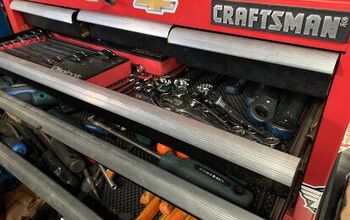Locked-down State Opens up Online Auto Sales, Nudging Industry in Direction of Recovery

Don’t expect the Present Year to come close to the sales tallies racked up in 2018 or the year before. No analyst foresees such a scenario; globally, LMC sees auto production taking a 20-percent haircut in 2020.
But the return to normality is underway in the U.S., aided by the federal government’s reopening plan (a set of guidelines to be acted on by individual states), but especially by the realization of governors that car buyers need some way to bring a vehicle home. Michigan, via an executive order, greenlit online sales on April 9th. Now it’s Pennsylvania’s turn.
Under Gov. Tom Wolf’s pandemic-prompted lockdown orders, no form of auto sales went forward over the past month. Dealerships did not appear on the state’s list of essential businesses (excluding the service bay), prompting many new car buyers to flee across the state line. Any direction would do.
New York, New Jersey, and Delaware all allowed online purchasing. Ohio and West Virginia saw no ban of any kind on auto purchases.
On Monday, Wolf relented. Via Senate Bill 841, Pennsylvania will allow “limited car sales and leasing operations through online sales,” though in-person sales and leasing will remain off the table. The hangup was that Pennsylvania law required in-person notarization of the buyer’s signature.
It’s a positive step for the hurting auto industry, as Philadelphia and Pittsburgh rank No. 5 and No. 20 on the list of largest U.S. new vehicle markets.
“Some of them involved in collisions, they really didn’t have the ability to wait a month or six weeks to get a car and it was really creating hardship for many,” one dealer told Pittsburgh Action News 4.
As we told you last week, the decline in U.S. auto sales has stabilized, with the cratering caused by coronavirus lockdown orders not proving as extreme as analysts at J.D. Power expected. Some markets proved resilient, among them Dallas, Phoenix, and Minneapolis, while other large (and hard-hit) areas, like New York City and Detroit, saw their sales fall to zero.
[Image: Jeff Bukowski/Shutterstock]

More by Steph Willems
Latest Car Reviews
Read moreLatest Product Reviews
Read moreRecent Comments
- Sayahh I do not know how my car will respond to the trolley problem, but I will be held liable whatever it chooses to do or not do. When technology has reached Star Trek's Data's level of intelligence, I will trust it, so long as it has a moral/ethic/empathy chip/subroutine; I would not trust his brother Lore driving/controlling my car. Until then, I will drive it myself until I no longer can, at which time I will call a friend, a cab or a ride-share service.
- Daniel J Cx-5 lol. It's why we have one. I love hybrids but the engine in the RAV4 is just loud and obnoxious when it fires up.
- Oberkanone CX-5 diesel.
- Oberkanone Autonomous cars are afraid of us.
- Theflyersfan I always thought this gen XC90 could be compared to Mercedes' first-gen M-class. Everyone in every suburban family in every moderate-upper-class neighborhood got one and they were both a dumpster fire of quality. It's looking like Volvo finally worked out the quality issues, but that was a bad launch. And now I shall sound like every car site commenter over the last 25 years and say that Volvo all but killed their excellent line of wagons and replaced them with unreliable, overweight wagons on stilts just so some "I'll be famous on TikTok someday" mom won't be seen in a wagon or minivan dropping the rug rats off at school.


































Comments
Join the conversation
"Resilient" is the new byword. (Closely followed by "flexible".) With all the uncertainty floating around, this might not be the best time to set yourself up with a recurring regular 'reverse' annuity (aka "car payment").
This is good if know exactly what vehicle you want to buy but I would not buy any vehicle that I have not at least had a test drive of a like model. If I had test driven a particular model then I would use this method of buying but I would want to do comparison shopping between dealers and since I am a Costco member have Costco give me a price as well.